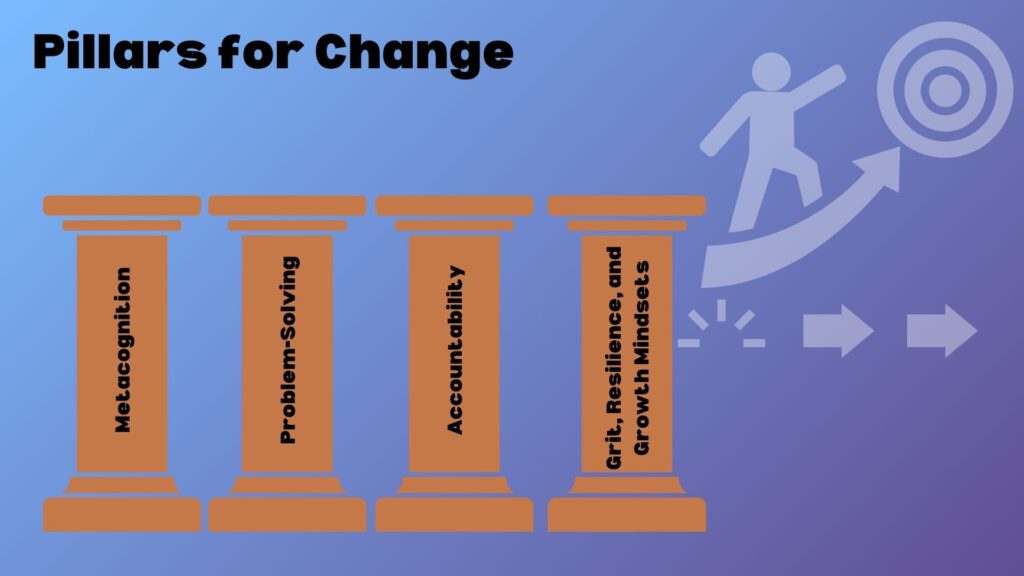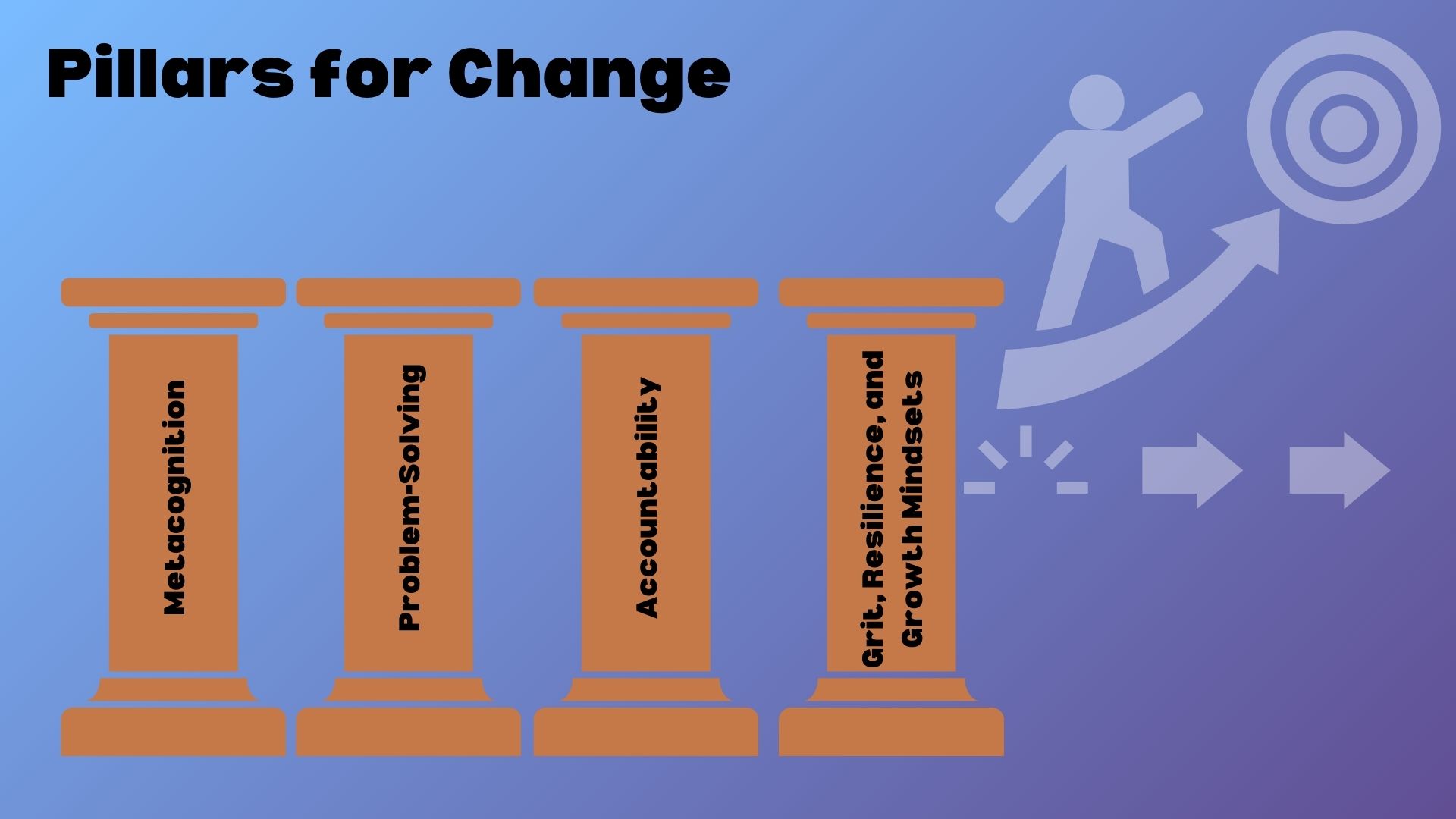
Change is an inevitable and crucial aspect of life, fostering growth and self-improvement. While adapting to change can be challenging, certain cognitive strategies can significantly ease the transition. This blog explores Building Blocks for Personal Transformation: A Guide to Embracing Change
Understanding the Challenge of Change
Before delving into the strategies for personal transformation, it’s crucial to understand why change can be so challenging. Our brains develop neural pathways based on our repeated behaviors and thought patterns. These pathways become our default modes of operation, making it effortless to continue our existing habits and ways of thinking. Creating change, therefore, requires not just a conscious decision but also a concerted effort to forge new neural pathways, a process that demands time, patience, and persistence.
Metacognition: The Art of Self-Reflection
What is Metacognition:
Metacognition refers to our ability to understand, analyze, and control our own cognitive processes. It’s thinking about thinking, knowing what we know, and understanding how we learn.
Why Metacognition is Important:
Metacognition is a critical skill for navigating changes effectively. It allows us to evaluate our thought patterns, beliefs, and strategies. By being aware of how we process information and react to change, we can adapt our strategies more effectively to embrace new challenges and opportunities.
Problem-Solving: Navigating through Challenges
The Importance of Problem Identification:
Problem-solving begins with recognizing challenges or obstacles that impede progress. Accurately identifying a problem is the first step toward finding a solution.
Brainstorming and Implementing Solutions:
Once a problem is identified, brainstorming potential solutions and selecting the most feasible option is crucial. Implementing the chosen solution and then reflecting on its effectiveness helps in learning from experiences and refining our problem-solving skills.
The Role in Metacognition:
Engaging in problem-solving enhances our metacognitive abilities. It helps us understand our approach to challenges and develop better strategies for future problems, making the process of adapting to change more intuitive and efficient.
Accountability and Follow-Through: Committing to Change
Trying and Committing:
Experimentation is key to discovering what works. However, identifying effective strategies is only half the battle. The real challenge lies in consistently applying these strategies until they become ingrained behaviors.
The Power of Accountability:
Holding oneself accountable, or having an external source of accountability, significantly increases the likelihood of commitment to change. Just like a personal trainer can keep us committed to a fitness regime, having someone to answer to can provide the motivation needed to stick to new strategies and habits.
Grit, Resilience, and Growth Mindset: Embracing Challenges
The Role of Grit and Resilience:
Grit and Resilience are vital in navigating the path of change, often fraught with obstacles. They involve seeing challenges not as barriers but as opportunities for growth and learning.
Growth Mindset:
Growth Mindsets are the understanding that abilities and intelligence can be developed through dedication and hard work. It’s about embracing challenges, persisting in the face of setbacks, and viewing effort as the path to mastery.
Practicing Resilience:
These skills are honed through practice. Just like any skill, grit and resilience grow stronger the more they are practiced.
How Coaching Facilitates Change
Externalizing Inner Processes
Coaching plays a pivotal role in the process of creating change. A coach acts as an external agent of metacognition and accountability. By providing an outside perspective, they can help identify blind spots in our thinking and strategies. They guide us through the problem-solving process and keep us accountable for following through with our commitments.
Example of Fitness Transformation:
Consider the role of a personal trainer in a fitness journey. They not only provide the expertise and plan for change but also the external motivation and accountability needed to stick to the plan. Similarly, in coaching, the coach helps in identifying the areas needing change, develops strategies for change, and provides the necessary support and accountability to ensure these changes become a part of our lives.
Creating lasting change requires more than just a desire or a plan; it involves a strategic approach that includes understanding our thought processes, effective problem-solving, and a commitment to follow through. Coaching can be an invaluable resource in this journey, offering guidance, support, and accountability to ensure the changes we seek become a reality.





